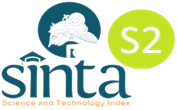Self Assessment (Kunci Keberhasilan Mahasiswa Calon Guru Dalam Menganalisis Konsep)
DOI:
https://doi.org/10.33477/bs.v9i1.1318Abstract
Self assessment is one form of assessment that can improve student learning outcomes. This research is a descriptive study that aims to describe in detail the achievement of competencies of prospective physics teacher students in analyzing concepts. The population in this study were physics education students and the samples were those who offered physics studies courses with a total of 30 students. Data collection was carried out for two months in a physics material study class. The research data will then be processed descriptively according to the research needs. The results showed that self-assessment was able to improve the ability of students to analyze concepts. This happens because self-assessment gives space to students to assess their abilities; know their strengths and weaknesses in analyzing concepts; find the root of their failure. Besides that model self assessment is a tool for students to communicate with lecturers to find solutions to their failures. Thus it can be concluded that self assessment is able to improve the competency of prospective physics teacher students in analyzing concepts well.References
Babaii, E., Taghaddomi, S. and Pashmforoosh, R. (2016). Speaking self-assessment: Mismatches between learners’ and teachers’ criteria. Language Testing, 33(3), pp.411-437.
Barak, M. and Dori, Y.J. (2009). Enhancing higher order thinking skills among inservice science teachers via embedded assessment. Journal of Science Teacher Education, 20(5), pp.459-474.
Barnett, J.E. and Francis, A.L. (2012). Using higher order thinking questions to foster critical thinking: A classroom study. Educational Psychology, 32(2), pp.201-211.
Brown, G.T. and Harris, L.R. (2014). The Future of Self-Assessment in Classroom Practice: Reframing Self-Assessment as a Core Competency. Frontline Learning Research, 2(1), pp.22-30.
Chiang, W.W. (2015). Ninth grade student’self-assessment in science: A Rasch analysis approach. Procedia-Social and Behavioral Sciences, 176, pp.200-210.
Cleary, M.L. and Walter, G. (2010). Giving feedback to learners in clinical and academic settings: Practical considerations. The Journal of Continuing Education in Nursing, 41(4), pp.153-154.
Freeman, R., & Lewis, R. (1998). Planning and implementing assessment. Psychology Press.
Goto Butler, Y. and Lee, J., 2010. The effects of self-assessment among young learners of English. Language Testing, 27(1), pp.5-31.
Grant, K.A. (2014). Comparing Student and Teacher Self-Assessment Practices.
Johansson, S. (2013). The relationship between students’ self-assessed reading skills and other measures of achievement. Large-scale Assessments in Education, 1(1), p.3.
Johansson, S. (2013). The relationship between students’ self-assessed reading skills and other measures of achievement. Large-scale Assessments in Education, 1(1), p.3.
Kumaidi. (2014). Implementasi Penilaian Autentik dalam Pembelajaran di Kelas. Makalah Disajikan Dalam Seminar Nasional Implementasi Penilaian dan Pelaksanaan Kurikulum 2013, yang Diselenggarakan Prodi Penelitian dan Evaluasi Pendidikan, Universitas Negeri Jakarta, pada 8 Maret 2014 di Jakarta
Linn, R. L. (1989). Educational measurement New York: American Council on Education.
Pantiwati, Y. (2016). Strategi Pembelajaran, Self Assessment, Dan Metakognisi Dalam Pembelajaran Sains. Research Report.
Reynolds, J. and Moskovitz, C. (2008). Calibrated peer review assignments in science courses: are they designed to promote critical thinking and writing skills?. Journal of College Science Teaching, 38(2), p.60.
Rijal, M., & Sere, I. (2017). SARANA BERFIKIR ILMIAH. BIOSEL (Biology Science and Education): Jurnal Penelitian Science dan Pendidikan, 6(2), 176-185.
Rijal, M. (2013). MODEL STAD (STUDIENT TEAMS ACHIEVEMENT DEVISION) DALAM MENINGKATKAN HASIL BELAJAR COGNITIF SISWA. Biosel (Biology Science and Education): Jurnal Penelitian Sains dan Pendidikan, 2(2), 150-158.
Smith, M.K., Wood, W.B. and Knight, J.K. (2008). The genetics concept assessment: a new concept inventory for gauging student understanding of genetics. CBE—Life Sciences Education, 7(4), pp.422-430.
Sudiyatno, S. (2010). Pengembangan Model Penilaian Komprehensif Unjuk Kerja Siswa pada Pembelajaran Berbasis Standar Kompetensi di SMK Teknologi Industri (Doctoral dissertation, UNY). Tidak dipublikasikan
Walker, D.M. (2012). Classroom assessment techniques: An assessment and student evaluation method. Creative Education, 3(6A).
Downloads
Published
Issue
Section
License
Authors who publish with this journal agree to the following terms: Authors retain copyright and grant the journal right of first publication with the work simultaneously licensed under a Creative Commons Attribution License that allows others to share the work with an acknowledgement of the work's authorship and initial publication in this journal. Authors are able to enter into separate, additional contractual arrangements for the non-exclusive distribution of the journal's published version of the work (e.g., post it to an institutional repository or publish it in a book), with an acknowledgement of its initial publication in this journal. Authors are permitted and encouraged to post their work online (e.g., in institutional repositories or on their website) prior to and during the submission process, as it can lead to productive exchanges, as well as earlier and greater citation of published work.














